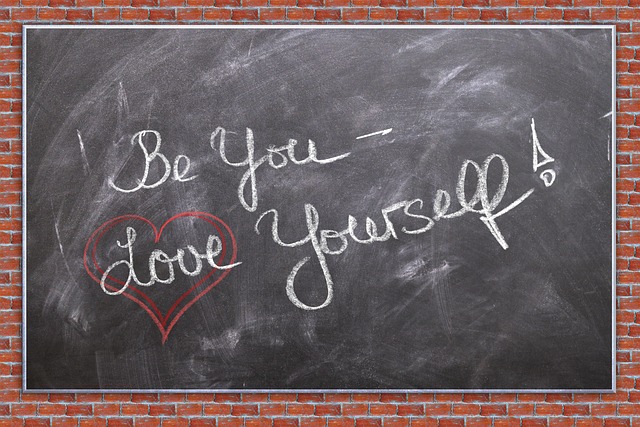Are You Abandoning Yourself?
By Dr. Margaret PaulJuly 23, 2012
Do you believe that feelings of abandonment are coming from others abandoning you, or do they come from self-abandonment?
 When we think about abandonment, we generally think about being left by someone. But abandonment is about leaving someone we are responsible for – a child or an old or sick person who cannot take care of themselves and whom we have agreed to take care of.
When we think about abandonment, we generally think about being left by someone. But abandonment is about leaving someone we are responsible for – a child or an old or sick person who cannot take care of themselves and whom we have agreed to take care of.
As a healthy adult, another adult can leave you, but they cannot abandon you, since they likely have not agreed to be responsible for you.
It might seem strange to you, but, as a healthy adult, when you feel abandoned by someone, it is not actually about them. It is about having abandoned yourself.
Most people don't think about how they abandon themselves because they don't recognize that they are responsible for themselves – physically, emotionally, spiritually, financially, relationally and organizationally.
Sometimes we abandon ourselves in one area and take responsibility for ourselves in another area. For example, you might work hard to make a good living and have learned how to manage your money, which means that you are taking financial responsibility. But you might be abandoning yourself physically by eating poorly, not getting exercise and not getting enough sleep. When this is the case, you are physically abandoning yourself. Or perhaps you take organizational responsibility by being on time and keeping your environment neat and clean, but you abandon yourself relationally by giving yourself up and not speaking up for yourself.
One of the most common ways that many people abandon themselves is emotionally. Most people don't realize that they are responsible for learning to learn from and lovingly manage their feelings. Few of us had good role models for managing our painful feelings in ways that support our highest good. Instead, we learned many dysfunctional ways of avoiding our feelings.
Emotional Self-Abandonment
I've discovered four major ways that many people emotionally abandon themselves:
- Self-judgment
How often are you aware of judging yourself? Do you tell yourself that you are not good enough, that you are a failure, that you are stupid, or ugly or bad? I don't think I've ever counseled a person who didn't judge themself in some ways.
- Staying in your head rather than being present in your body
Do you spend most of your awake time thinking, being unaware of your feelings? Is thinking a way you've learned to avoid feeling your feelings?
- Turning to various addictions
Have you learned to turn to various addictions to avoid feeling your feelings? Do you indulge in substances, activities or various forms of controlling behavior to avoid your feelings?
- Making another or others responsible for your feelings
Do you look to others for the attention and approval that you are not giving to yourself? Do you then try to control them with anger, judgment, compliance, withdrawal, or resistance, in order to get them to give you want you want?
Feelings—Your inner Guidance System
The problem with emotionally abandoning yourself in any of these ways is that you are bypassing your entire inner guidance system. For example, do you know how you feel when you abandon yourself? Most people feel anxious, depressed, empty, alone, guilty, shamed, and/or angry when they abandon themselves, but they rarely connect these feelings with their self-abandonment. Instead, they believe they feel this way due to something external.
If you start to tune into how you feel when you judge yourself, or when you are in your head thinking rather than being present in your body, or you are acting out addictively or making others responsible for you, you will discover how awful you are making yourself feel. You will discover that your feelings of anxiety, depression, emptiness, aloneness, guilt, shame, abandonment, or anger are letting you know that you are abandoning yourself.
Do you want to know this? If you do, make a decision to start learning from your feelings, rather than avoiding them. You will discover that when you learn to take emotional responsibility, it becomes far easier to take personal responsibility in all other areas of your life. You will discover that when you start to learn from your feelings, rather than continue to avoid them, your entire life will change for the better.
Join Dr. Margaret Paul for her 30-Day at-home Course: "Love Yourself: An Inner Bonding Experience to Heal Anxiety, Depression, Shame, Addictions and Relationships."
Image by Gerd Altmann from Pixabay
 Send this article to a friend
Send this article to a friend  Print this article
Print this article  Bookmarked 10 time(s)
Bookmarked 10 time(s)
| Related Articles |
|---|
| Self-Compassion or Self-Abandonment |
| Self-Abandonment |
| How Do You Abandon Yourself? |
| Anxiety, Depression and Self-Abandonment |
Comments
| Author | Comment | Date |
|---|---|---|
| Join the Inner Bonding Community to add your comment to articles and see the comments of others... | ||

Daily Inspiration
Today, remember that you are a child of God. Remember that Spirit supports your highest good at all times. Remember that it is your birthright to give and to receive. Remember that we live in an abundant universe and that you have a right to and are deserving of that abundance.
By Dr. Margaret Paul

 Share with Del.icio.us
Share with Del.icio.us Share with Digg
Share with Digg







